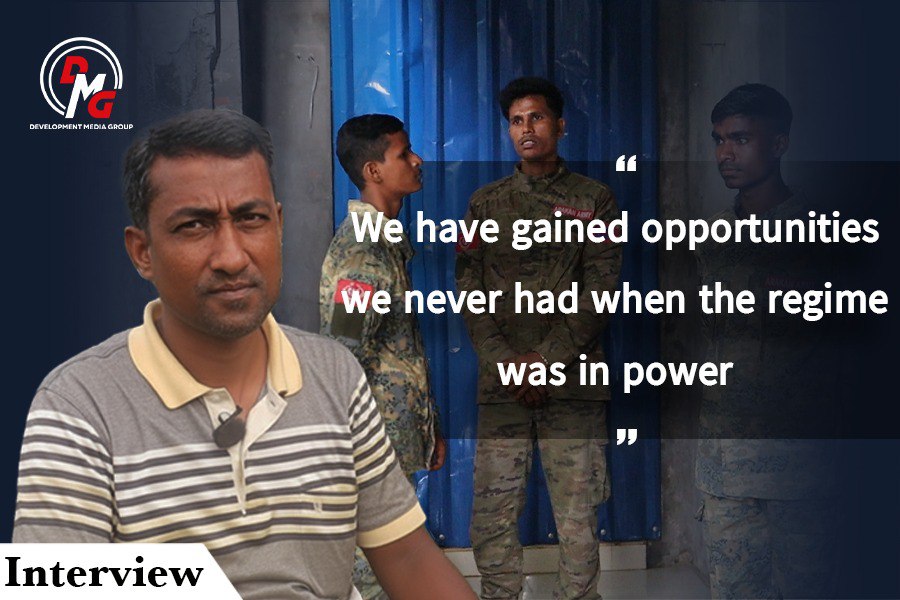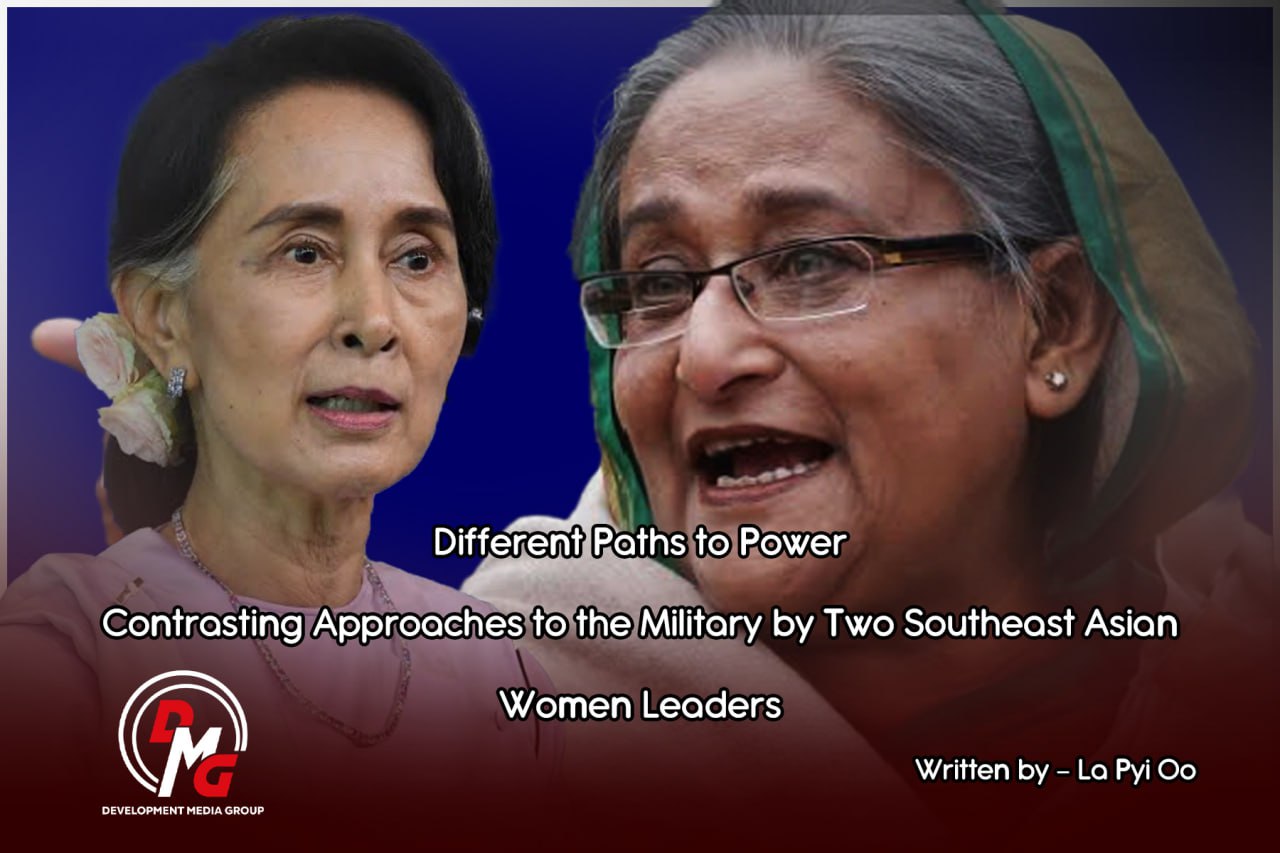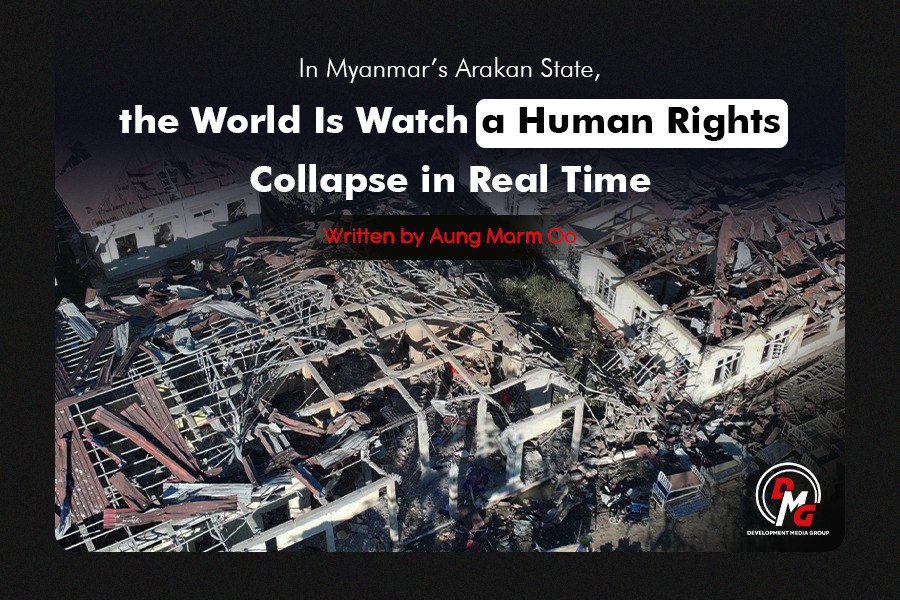- Timber prices soar in Arakan State amid supply shortages
- AA-led forces clash with regime near strategic Nat Yay Kan base in Ngaphe Twsp
- Five murder cases recorded in Arakan State over six months
- Weekly Highlights from Arakan State (Jan 12-18, 2026)
- Arakan Army denies junta claims of drug involvement
Interview: 'We have gained opportunities we never had when the regime was in power'
DMG interviewed Maungdaw District Muslim Administrative Advisor Jury Baser about the current social dynamics between Arakanese and Muslims in the district, as well as allegations by Muslim activists in exile and ARSA attacks.
27 Sep 2025

DMG Newsroom
27 September 2025, Maungdaw
Under the authority of the United League of Arakan/Arakan Army (ULA/AA), positive developments in relations between the Arakanese and Muslim communities in Arakan State have been considered one of the ethnic armed group's successes.
At the same time, Muslim activists in exile have been attacking the Arakan Army online as the Muslim armed group Arakan Rohingya Salvation Army (ARSA) stages attacks on the Arakan Army on the ground, both alleging human rights violations against Muslims by the Arakanese ethnic armed group.
DMG interviewed Maungdaw District Muslim Administrative Advisor Jury Baser about the current social dynamics between Arakanese and Muslims in the district, as well as allegations by Muslim activists in exile and ARSA attacks.
DMG: First, give me a sense of the current situation of Muslims living in Maungdaw District.
Baser: As for the coexistence between Arakanese and Muslims, I can't say exactly because Buthidaung and Maungdaw have been under the control of the ULA/AA for less than two years. Even at this time, I hope that Muslims will have more freedom and opportunities in the future.
DMG: Please also tell us about the status of Muslim participation in the ULA/AA administration.
Baser: There are Muslims in the ULA/AA's police and armed forces. With Muslims in the administration, we can say that we have gained opportunities that we never had when the military regime was in power.
Regarding the military and administration of the ULA/AA, if Muslims are allowed to participate to this extent even in the beginning, I hope that in the future Muslims will gradually be able to cooperate and serve in all government departments. I believe that this will further strengthen the construction of Arakan State with greater harmony and trust.
DMG: What do you think about Muslim activists abroad?
Baser: Muslim activists abroad, without knowing exactly what is happening on the ground, are making biased comments and criticising us. To be honest, it is like trying to kill Muslims in Arakan State. Now that it is a revolutionary period, people are having a hard time making ends meet. Some people have gone abroad for their own purposes. Some people who are abroad are spreading propaganda telling their children not to stay here and are trying to get them to flee abroad. Some of these people know the good things about this country. Some people are forced to say bad things.
Political leaders abroad, without investigating in detail what is happening here, are presenting it to the international community based on their own needs and interests, and are harming our social harmony. We are concerned that the country's development will further deteriorate and harm the coexistence of all ethnic groups. It also threatens our principle of coexistence and the path we are taking, and I condemn it.
DMG: What do you want to say about Muslim armed groups like ARSA?
Baser: ARSA has a history of operating throughout Maungdaw, Buthidaung and Rathedaung. Those who did not support ARSA in the villages were killed, kidnapped and extorted. Muslims were suffering due to ARSA's actions in 2017. Hundreds of thousands of Muslims fled to neighbouring countries like Bangladesh, Malaysia and Thailand. ARSA's history is nothing but negative. ARSA has only harmed and killed Muslims. ARSA has done nothing good for Muslims, Arakanese, Daingnet or Hindus.
DMG: What impact do you think ARSA's violence and threats will have on security in this region?
Baser: It is dangerous for us. ARSA is slaughtering people who do not stand by their side. It is very worrying that ARSA is kidnapping people who criticise them. Also, ARSA is crossing the border for its own interests and torturing people in the forests and mountains. I am concerned about this. If the government is going to protect it, the public must cooperate. I would like to say that after securing the border, management will be needed to address the threat of violence.
DMG: What are your expectations for coexistence in Arakan State? And what kind of support does the ULA/AA have for Muslims?
Baser: Muslims were also severely oppressed in education during the military regime. Muslim students were not allowed to study at universities, even if they had good grades to enter medical schools or technical schools. Muslims were denied access to education because they were not citizens. Muslims have suffered a lot in education. Now, we do not expect such racial discrimination to occur in Arakan State. I believe it will not happen.
The military regime had a slogan about the country's economy. It should be up to the citizens. As for Muslims, only those who are comfortable with the military have the right to do so. Now, without this, I believe that if you have the skills and capital, you will be allowed to do business as much as you want. I also believe that you will be allowed to do so.
DMG: What else would you like to say about Muslim issues?
Baser: Muslims have always been suppressed by the Myanmar military, who once considered them stateless and illegal immigrants from Bangladesh. Now, I would like to ask all Muslims living in Arakan State to be loyal and be open to serving.




.jpg)















